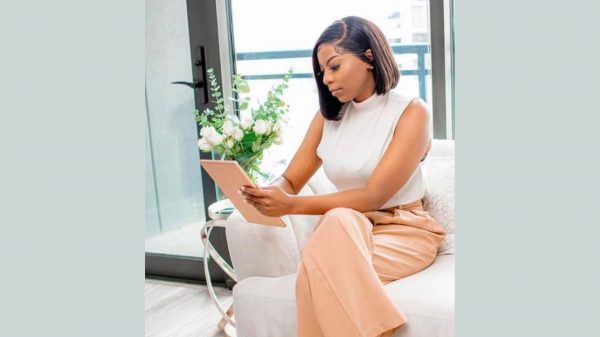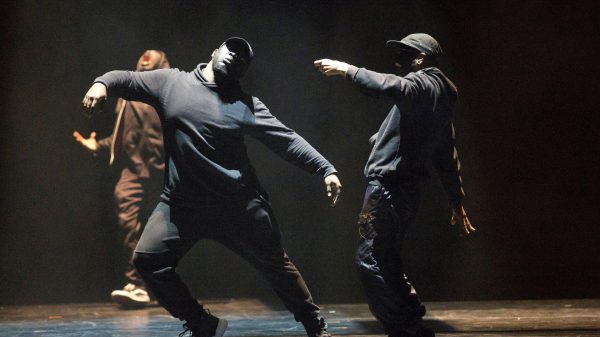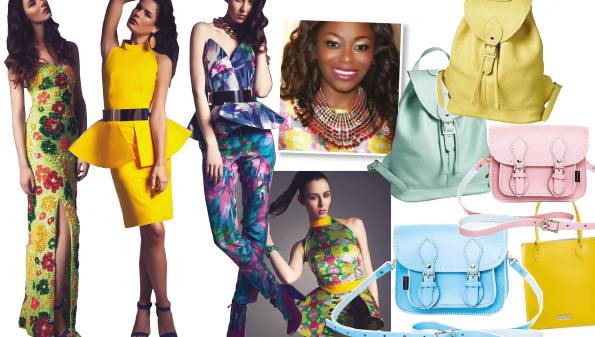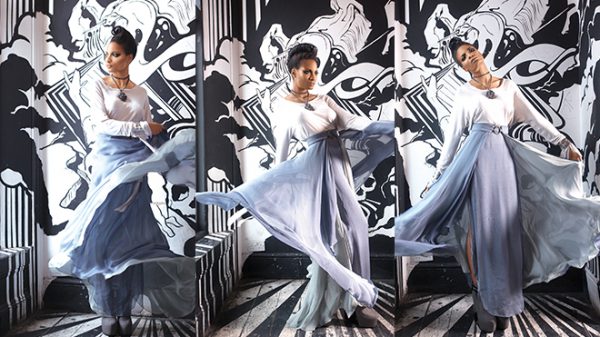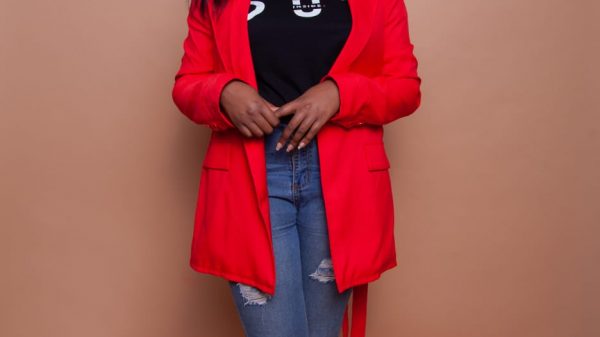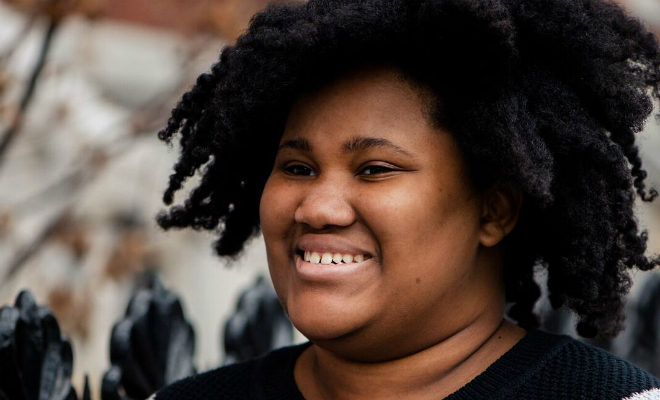The New York-based writer and activist has released a necessary contribution to the Young Adult fiction canon with debut novel Full Disclosure, tracking a HIV-positive teenager’s awakening sexuality. Nicole Vassell finds out how she’s achieved so much at such a young age
For all the criticisms that exist for social media, there’s at least one major aspect for which we can give it credit: the amount of voices that it’s been able to give a platform to. Gone are the days when your opinion is only considered valuable if you’re ‘fully grown’; the age of social media has meant that there’s some levelling of the playing field, where information is processed faster than ever, and there’s no age limit to who can share it.
Someone who stands as a prime example of this is Camryn Garrett. Since her early teens, she has built an online following through speaking her mind on political and social issues that affected her and her friends, as well as others. Her journalism career started at the age of 13, when she was a TIME for Kids correspondent – and her talent for shedding a nuanced light on potentially tough topics was clear, even from then. With her work ranging from Black girlhood to police brutality to queer identity, Garrett is confident in her opinions and speaks them loudly – a sort of admirable bravery that seems to be second nature to those in Generation Z (people born in 1995/6 and later).
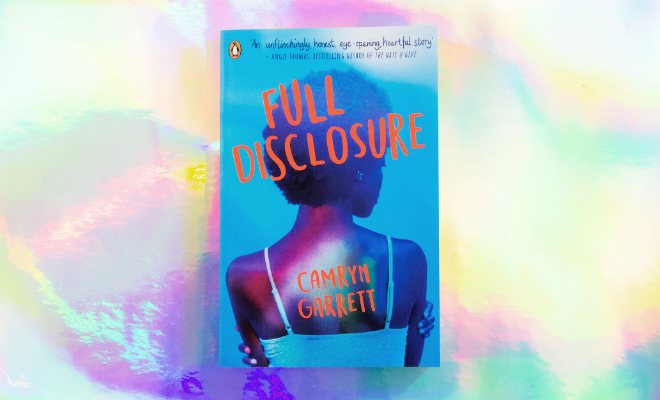
At the age of 17, she penned her debut novel, Full Disclosure, about teenager Simone Garcia-Hampton – new at her school, she’s already busy getting to grips with her new surroundings when she falls for Miles Austin, a hot, popular guy she shares theatre rehearsals with. However, being born HIV-positive, Simone has to figure out how to have the sexual awakening she wants, despite unnerving messages from an anonymous classmate who threatens to tell the school about her condition.
Now 19, Garrett’s book has hit the shelves. It’s a breathtaking and sensitive read that is educational, as well as gripping, and representative of the diversity that exists in modern society. Though not living with HIV herself, Camryn Garrett’s sharing of this life experience in the form of a young adult novel is commendable, and it would do wonders in the hands of as many people as possible. During the London leg of her book tour, I met up with Garrett to find out exactly how her special book came about, what it’s like being a young high-achiever, and how she keeps her feet on the ground.
Hi Camryn! Let’s talk books, and let’s start at the beginning. How did the idea for Full Disclosure come about?
Camryn Garrett: It actually started with an obsession with Angelina Jolie; she adopted her first daughter from Ethiopia, and when they brought her home, she was really sick, and they thought she might have HIV. Angelina was quoted in a story saying that she didn’t care if she had HIV: they were still a family and she still loved her. [Her tests ultimately came back negative.] And when I read that, it didn’t make any sense to me; I thought if you had HIV you’d die. So, I started googling. I was about 14 or 15 at the time. I found a group of blogs from people who’d adopted kids with HIV, and I was shocked by how normal it was, and it was completely different from my idea of what it’d be like to be a child with HIV. However, a lot of the bloggers were Christian, so they’d say things like, ‘The only thing my child has to worry about is disclosing to their partner when they have sex, but it’s fine because they won’t have sex until they’re married.’ And I didn’t think that’d necessarily happen with everyone. This curiosity gave me the idea.
This book is so unique, and so refreshing compared to other things I’ve read – firstly, in seeing Simone, a Black teenage girl, expressing sexual desire so openly. What was it like bringing that character to life?
I wanted to write a character that reminded me of my friends – and she was sort of braver than all of us, because we would talk a lot about sex, but not actually do anything. Not that there’s anything wrong with that, but we just didn’t… we’d talk to each other about it, but no one else. With Simone, I really like and admire that she tries to go out and get it, on her terms. I like that she’s not really in a relationship where she’s pressured into anything; she’s initiating and setting the boundaries that she has. And I like showing a young girl with the ability to set those things – because I don’t know if I necessarily see that all the time. Especially a Black girl. That was very important to me.
As a writer, you don’t hold back when it comes to getting graphic. Was it ever difficult ‘going there’?
Yeah. (She nods.) I would allude to things at the start, and one of the things that my agent said when we were doing revisions was: ‘Just go! Go as far as you can, and I’ll rein you in.’ That was really helpful for me, because I was self-censoring, thinking: ‘Oh my God, what if my mom reads this?’ But once we got deeper into revisions, it was more like, let me be wild. For example, there’s a scene where the main character buys a vibrator. I was like, ‘I could never write that!’ and she was like: ‘But what if you just wrote it for yourself? What would you want to see in that scene?’ I wrote it, and she said it was great – and it went in. And I think doing that made the book better, even though it was scary initially.
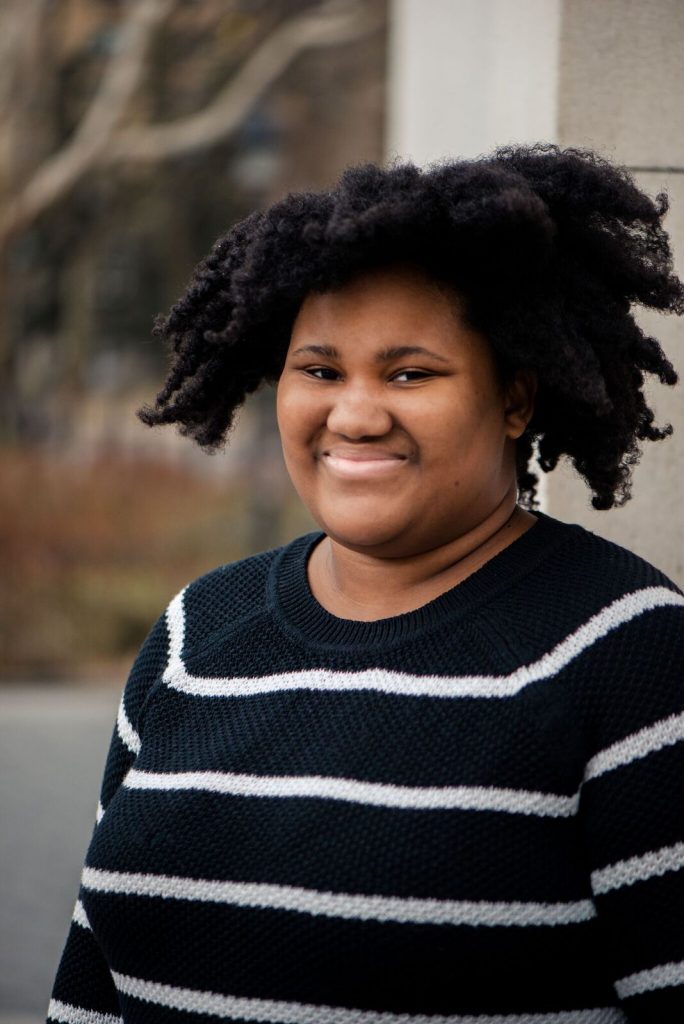
The protagonist, Simone, was born with HIV, and this is a significant factor in the story, and in her quest to start sexual relationships. What has been some feedback from HIV positive readers so far?
There’s one girl who ended up reading an early copy of the book. When Full Disclosure was announced, she Tweeted at me and said she was crying because she wishes she had this book when she was diagnosed. I’m really happy that she was part of the process because even her feedback was like: ‘I don’t see anything wrong with this, this is great’ – and it just made me feel really happy that I could do that. When it came out, she said she’d never had a book like this. I abstractly thought about that when I was writing, but to actually hear someone say it was really impactful.
As someone who is HIV negative, did you ever have any hesitation about telling this story? As in, ‘it’s not your story to tell?’
I think what pushed me to tell this story was that I knew so many people who didn’t know anything about HIV. And then the more I learned about it on my own, it bothered me hearing people say ignorant stuff. I’d make these very dramatic speeches to people, but like I didn’t know how much impact that that had. Writing a book, especially for young people, has more of an impact because the people will hopefully internalise the messages and information and hopefully do their part in breaking down the stigma with HIV.
I think it’s safe to say that you’ve been a high achiever from a very young age. How do you keep your head on straight while being a gifted child?
My parents. My mom is proud, obviously, but I don’t think she really cares if I’m going to London for a book or whatever, she’s like: ‘You have to keep your grades up, college is most important’. Also, I go to NYU [New York University] – it’s a great school but there are lots of ‘famous’ kids going there. If I say, ‘I have a book, this is why I’m gone’ to my professors, they’re like: ‘Well… you still have to turn this in.’ Some are impressed, but they’re not giving anyone any special treatment. I think that really keeps my head screwed on straight.
What made you start so early? Before finishing high school, for example. What gave you the knowledge that you could start as early as you did?
There are other authors, like Alice Oseman, who sold their books when they were 17. But really, it was this fear of trying to go into the creative industry when I was older; when I had responsibilities like paying bills, and taxes. And there’s also the idea that if you want to be good at something, you have to work at it for 10,000 hours. So I was like, if I start now, then the 10,000 hours will be up probably by the time I’m 18. If I get started earlier, then I won’t have to worry. A lot of the interviews you read, it’s like, ‘I wrote at 5am before work; I wrote around this, and I had a day job’ – I didn’t want to have to worry about that.
Growing up, where did you feel seen/represented? And in recent years, what have you read/watched that has helped you feel that way?
I think the first book I read where I really felt represented was The Hate U Give, by Angie Thomas (2017). It was kind of wild, because I’d been reading for so long before then, but that was the first time I was like, ‘Wow – the way she talks, the way she dresses, the things she deals with at school, the things she thinks, this feels like me.’ I didn’t realise that that could happen, and that I could see that in a book. When I first started writing I wrote white characters, and I made sure to say that they were white. I think Angie [Thomas] and that book really inspired me to do things differently.
Finally, who would you say Full Disclosure is for, and why should they read it?
Full Disclosure is for anyone who really wants to read a love story – not just about two teenagers falling in love, but about a girl falling in love with herself. It sounds so corny, but I really love the fact that Simone knows that she shouldn’t be treated in certain ways and she continues to hold onto that, even when it’s hard. She knows how she should be treated and she won’t let people treat her any other way.
Full Disclosure is out now. Follow Camryn Garrett on Twitter: @dancingofpens





